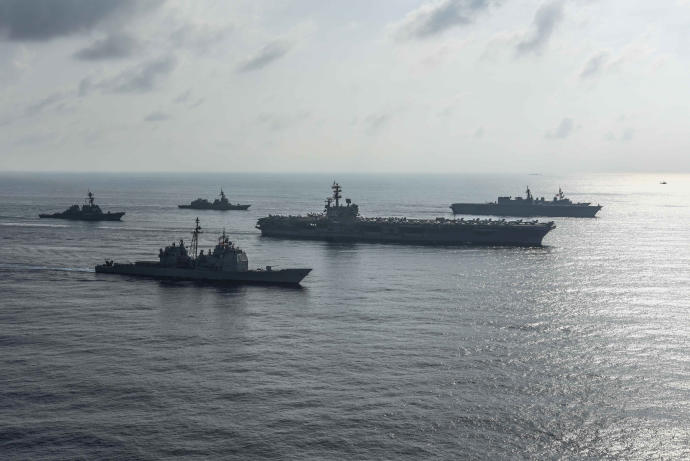The United States, Australia, Japan, New Zealand and the United Kingdom launched an informal group aimed at boosting economic and diplomatic ties with Pacific island nations, the White House said on Friday.
Under a mechanism named “Partners in the Blue Pacific,” the five countries said they will pursue “more effective and efficient” ways to deal with challenges such as “growing pressure on the rules-based free and open international order.”
“As our countries – Australia, Japan, New Zealand, the United Kingdom, and the United States – continue to support prosperity, resilience, and security in the Pacific, we too must harness our collective strength through closer cooperation,” they said in a statement.
“As our countries – Australia, Japan, New Zealand, the United Kingdom, and the United States – continue to support prosperity, resilience, and security in the Pacific, we too must harness our collective strength through closer cooperation,”
Partners in the Blue Pacific
The Biden administration has vowed to commit more resources to the Indo-Pacific as China seeks to boost economic, military and police links with Pacific island nations hungry for foreign investment.
The group will seek to support Pacific regionalism and strengthen economic ties between the Pacific islands and the rest of the world.

"We are united in our shared determination to support a region that benefits the peoples of the Pacific. We are also united in how we realize this vision -- according to principles of Pacific regionalism, sovereignty, transparency, accountability, and most of all, led and guided by the Pacific Islands," the White House said.
White House Indo-Pacific coordinator Kurt Campbell said on Thursday he expects more high-level US officials to visit Pacific island countries as Washington steps up its engagement to counter China in the strategically important region.
Campbell said the United States needed more diplomatic facilities across the region, and more contact with Pacific island countries that at times "receive lesser attention."
Spotlight on China
The US and its allies like Japan have been alarmed by China’s moves to bolster its influence in the Pacific, such as by signing a security pact with the Solomon Islands in April.
The treaty reportedly allows the deployment of Chinese police, military and other armed personnel, as well as the docking of the Asian power’s military ships in the islands.
According to Australian media, China has also sought to persuade Pacific island countries to sign an agreement covering a wide spectrum of issues including trade, security and police cooperation, and fisheries, but failed in its attempt.
